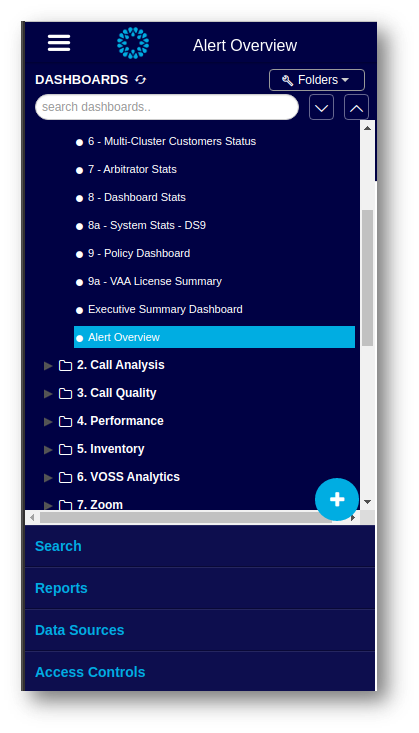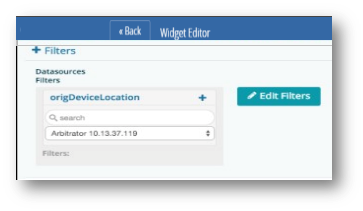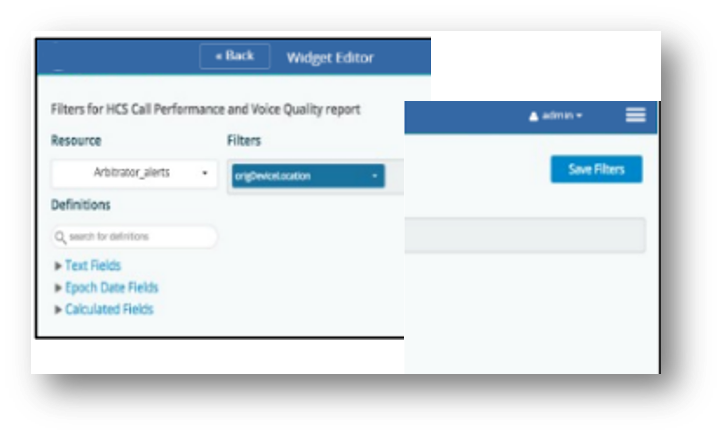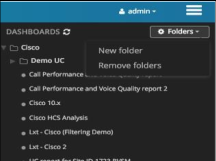Introduction to Dashboards¶
Overview¶
In the Insights Dashboard user interface, the DASHBOARDS panel displays all dashboards, reports, and their associated folders, and the following additional menus, which you can use to work with the dashboards: Search, Reports, Data Sources, Access Controls
Note
Both default and custom dashboards display in the DASHBOARDS panel. If you wish to restore a dashboard to its default value, you can use the Reinstall Packaged Dashboards option via the admin menu (via ssh admin@<IP address>).
The animated wave icon
 is displayed while the GUI is loading or refreshing data.
is displayed while the GUI is loading or refreshing data.

Related Topics
Search Dashboards¶
Use the Search bar at the top of the DASHBOARDS panel to perform a quick search to find dashboards by their name.
Global Filters¶
Selecting a dashboard in the DASHBOARDS panel displays configuration and display options for that dashboard. One such option is Global Filters, which allows you to configure and apply global filters based on a data element extracted from a search definition and resource defined for the dashboard.

Click Edit Filters to open the Filter Wizard, where you can select the Resource and the Definition to apply as a filter. Once complete click Save Filters to return to the dashboard.
An example of a global filter is producing a performance dashboard by customer location. The widgets on the dashboard are all the performance statistics but the data is filtered by the customer location.

Note
Global filters (and customer filters) work as an IN function that searches for exact string match in SQL. For example:
IN (172.30.42.1, 172.30.42.2)
You must type out all values in the search box (separated by commas), and then press Enter. If you press Enter after selecting each IP address, the search only returns data if all of the IPs are found in the field (which is unlikely).
Dashboard Folders¶
Dashboards are organized initially in alphabetical order.
When creating dashboards, you can organize these into folders that expand out into trees based on the order you define.
To add a new sub-folder or top-level folder in the DASHBOARDS panel, click the Folders down-arrow and select either New sub folder or New top level folder.
You can drag and drop a sub-folder into the relevant top-level folder, or drag the relevant dashboard into a folder.
To remove a folder, select the folder, then select Remove folder from the Folders drop-down.
Note
Dashboards with the same name can exist in different folders. The names of dashboards in the same folder must be unique.

